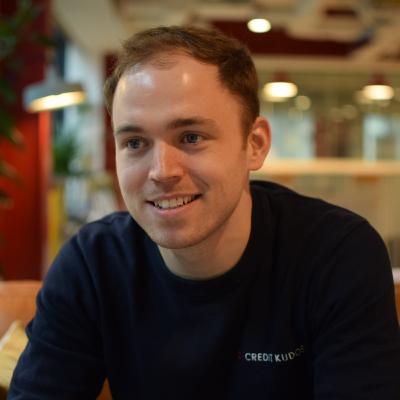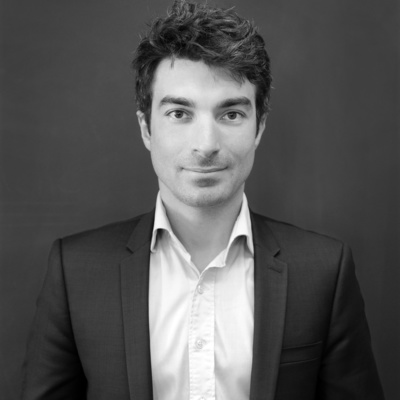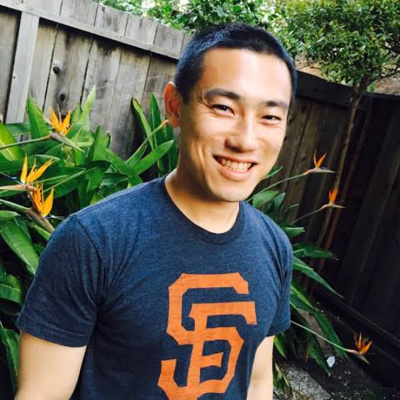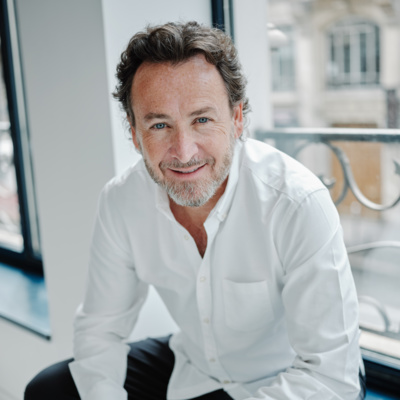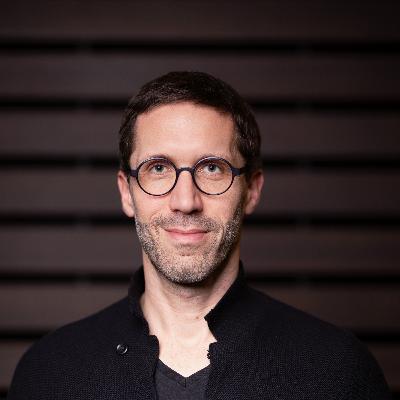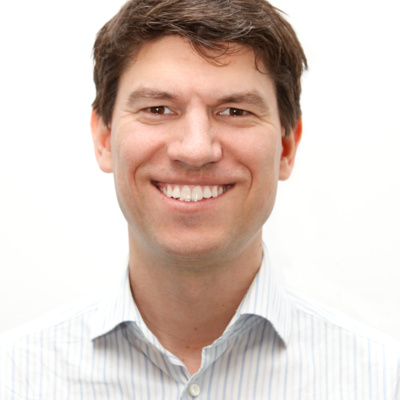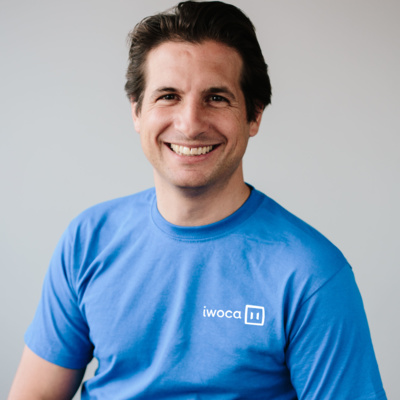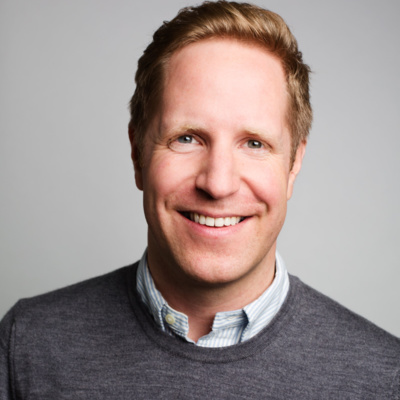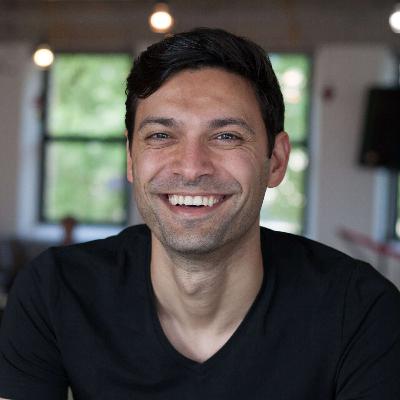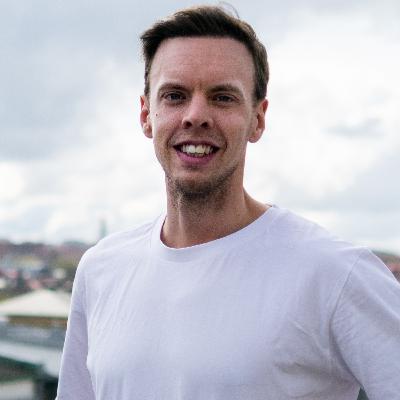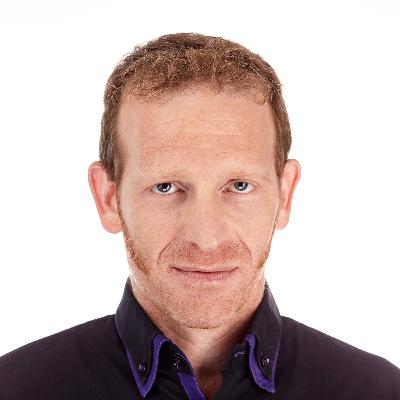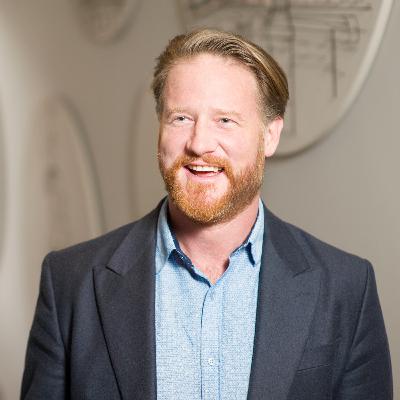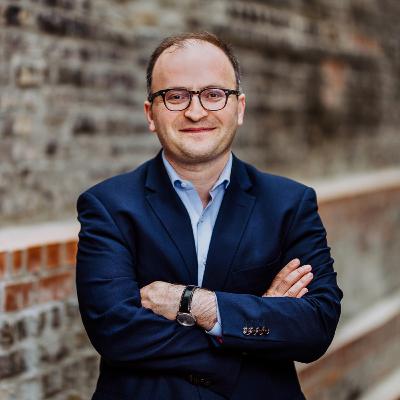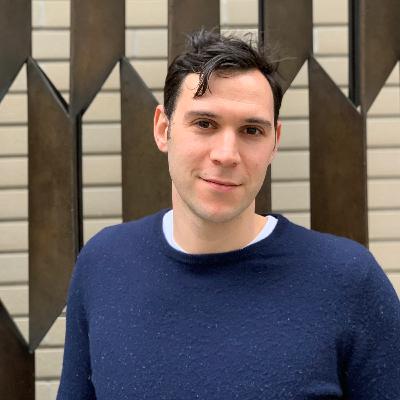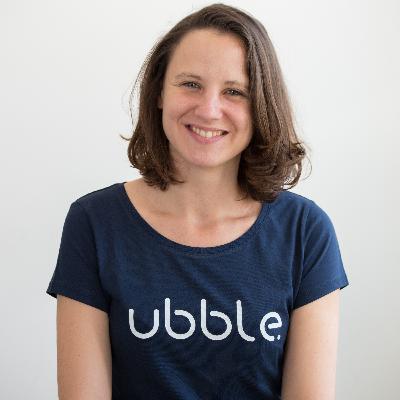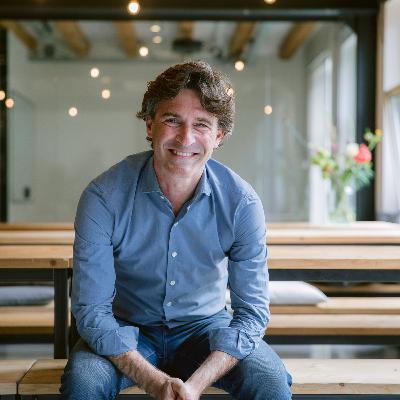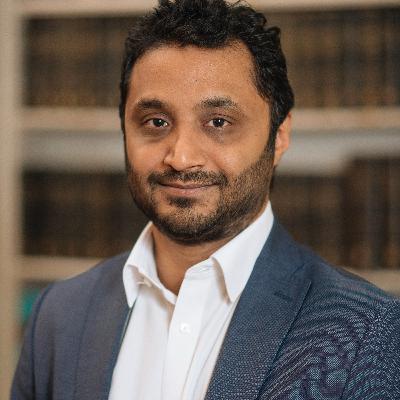Discover The F in Tech Podcast
The F in Tech Podcast

The F in Tech Podcast
Author: Elliott Gotkine
Subscribed: 3Played: 66Subscribe
Share
© Elliott Gotkine
Description
Fintech founding myths from the pioneering innovators, entrepreneurs and investors who turned their disruptive visions into reality.
Hosted by broadcaster Elliott Gotkine the F in Tech podcast lifts the lid on fintech founders whose journeys of genius - and despair - are changing our lives, mostly for the better.
The F in Tech podcast is co-produced in 2021 by the Paris Fintech Forum with the support of bpifrance
acast.com/privacy for privacy and opt-out information
46 Episodes
Reverse
When he got his first taste of startup life, in San Francisco, freshly-graduated Freddy Kelly did a few months at culinary school on the side. Little did he know that years later, his baking skills would help him blag his way into a conference by virtue of a chocolate cake he'd baked. He met Credit Kudos's first investor there, and his fintech - an open banking credit-reference company - was off to the races. It hasn't stopped running since.
In its early days, banks tried to block Bankin’. Some set up call centres, warning customers of the danger of using the personal finance app, and encouraging them not to use it. On one occasion, they even called Joan, not realising that he was the fintech's co-founder. Nowadays, with open banking, it's a different story; banks, for the most part, are cooperative. And Bankin' is now blossoming into one of Europe’s leading consumer finance apps - with a potential B2B spinoff to boot.
Some people thought launching a fintech during a pandemic was crazy. Then Banxware - a Germany-based, white-labelled SME lending platform - saw its banking partner, Wirecard, blow up. Since then, it's been relatively plain sailing!
How Yoshi Yokokawa is enabling the world to have Robinhood-style access to financial markets and crypto, and why the Alpaca co-founder & CEO feels the furry camel cousin best symbolises this ambition.
How Olivier Jaillon cheated death, and survived the failure of his U.S. startup, to reinvent a 200-year old insurer-turned-insurtech, Wakam.
How having investors from day one helped wealth management platform, Elinvar, get off to a flying start, and why co-founder and CEO, Chris Bartz, says that doesn’t mean there was any less pressure. Fun fact: "elinvar" is an alloy of iron, nickel, chromium, and other constituents, resistant to rust and magnetization and having a low rate of thermal expansion.
Aged 14, Radko Albrecht, was one of Germany’s top figure skaters. A child of Slovakian refugees, he was on track to become an Olympian, something that would have required focus, dedication and the ability to pick yourself up when you’re down. He never made it to the Olympics, but those same skills have come in handy with his chosen path: founding BitBond, which helps banks and intermediaries issue and securitize bonds using blockchain technology and tokenization.
When Christoph Rieche told colleagues at Goldman Sachs he was leaving to set up iwoca, some of them thought he was crazy. Others were jealous. Ten years later, the second group would appear to have been right: iwoca has now helped more than 65,000 small and medium-sized enterprises (SMEs) gain access to capital. It's building out new products all the time, raising $350m in debt and equity capital along the way. And although Christoph's creative talents may not have come up to snuff for him to have become an architect, the businesses iwoca has helped people to build may end up having an even bigger impact than any structure he may have designed.
The buy-now-pay-later (BNPL) space is on fire right now - just look at Klarna's latest funding round, valuing the fintech in excess of $45b, or the $29b Square paid for Afterpay. So it seems as good a time as any to catch up with Christer Holloman, founder of Divido, which connects banks to retailers, to offer customers BNPL. His other big passion is promoting diversity in fintech through his charitable initiative, Fintech Finishers.
"I'm raised by a single mother in northern Sweden [and gay]," he says. "So for me, gender diversity and equality has been a given from day one. And then when I came to the UK, started my company and just sort of being busy building the company, I didn't really think much about it. And then, one day, I took a good, hard look at my leadership team, and two middle-aged, white, straight men were looking back at me, and I realised: 'hang on a second, where did I go wrong a long the way here'."
How Ali Niknam went all in with more than 100 million euros ($125m) of his OWN money to create an eco-friendly neobank called Bunq (now valued at nearly $2b), and why he doesn’t lose sleep over it - despite the high steaks.
Joakim Sjöblom founded Minna Tech to stop people wasting money on subscriptions they no longer want - but seeing his first company fail, and losing money in the process, he says, was worth every penny.
How Nimrod Lehavi turned his frustrating experience of buying crypto into Simplex, and why it was anything but simple.
His grandfather founded the Cincinnati Bengals American Football team. Ricky Knox co-founded Tandem (along with 10,000 other people - kind of), while almost striking gold with Bitcoin. He's now stepped down as CEO of the neobank. But with an entrepreneurial journey that's included selling clubbing clothing, and mobile phone infrastructure to the Central African Republic, you can be sure that whatever he does next will be anything but dull.
How Nicolas Meric made the leap from particle physics to fintech, and the challenges he faced along the way with Dreamquark.
Entrepreneurs often describe multiple existential challenges hitting them at the same time as “a perfect storm”. But Nigel Verdon, CEO of banking-as-a-service platform, Railsbank, must surely be the only fintech founder to have gone through one in the literal sense. Of course, being able to keep calm in such trying circumstances can give you perspective when dealing with 30-foot swells like a financial crisis or a pandemic - enabling you to see through choppy seas to the destination that lies beyond.
Tamas Giorgadse was a chess prodigy who survived civil war and hyperinflation. He finished school aged 12, and completed his masters three years later. He moved to Germany, gained two PhDs and went to work for McKinsey. Next, he co-founded Raisin, Europe’s leading platform for savings and investments. Already a unicorn, the fintech recently announced a merger with domestic rival Deposit Solutions, to create Raisin DS.
A back injury - possibly caused by some overexuberant dancing at a wedding - put Anthony Beilin out of action for six months. Luckily, he worked full-time, at Aviva. His income didn't suffer, and he received all the physical and emotional help he needed. But when a contractor friend came to see him - and told him of his loss of income and benefits while off from a knee-op - the proverbial lightbulb went off in Anthony's brain. Why, he reasoned, should gig-workers, freelancers and contractors be deprived of sick pay, holiday pay and other benefits just because of the way they work? This issue became especially pressing during the pandemic - giving Collective Benefits a perfectly-timed opportunity to step into the breach.
A lunch, an idea and a co-founder she trusted were all it took for Juliette Delanoe to leave her job at Thales to create Ubble, a (for now) French-focused, web-based identity verification startup. As with so many digital-first businesses, the past 12-18 months have been a boon; banks and financial institutions account for more than half the company’s clients. And if you’re wondering why “Ubble”, it’s a riff on the famous telescope that sees into the depths of space (in French, the H is silent!).
When he was fired by Citi in 1999, a young Nick Bortot received some friendly advice from his soon-to-be ex-boss: don't get another job in finance. Yet that's just what he did, joining the Netherlands' first online broker, before helping to build BinckBank into the first Dutch fintech unicorn. In 2013 he founded BUX, a pan-European trading platform, partly because he had a point to prove. Inevitably, it's often compared to Robinhood, and not just because the two startups were founded within months of one another. It offers zero-fee trading, and has the size, scope and simplicity that have made Robinhood a household name. But it doesn't get paid for order flow (it's illegal in the EU). And with a focus on subscriptions, education and long-term investment, it's also Europe's anti-Robinhood. In that sense, it’s a bit like Schrödinger's cat being alive and dead at the same time. So maybe we should call it Schrödinger's app!
Born in Bombay, and raised in Singapore, Anand Sambasivan was destined to be a doctor - till it turned out he wasn't very good at medicine. He went into investment banking and then set up a hedge fund, where he had privileged access to IPOs and other share offerings. But he didn’t think it was fair. So he founded PrimaryBid to level the playing field. Thanks to the London-based fintech - and a partnership with the LSE - retail investors have had access to IPOs, such as Deliveroo and PensionBee, and share sales by the likes of Compass Group, Ocado and Taylor Wimpey. WIth more than 160 deals done, PrimaryBid has now launched in France. The U.S. may not be far behind, as Anand continues on his mission to put the P back in IPO.


